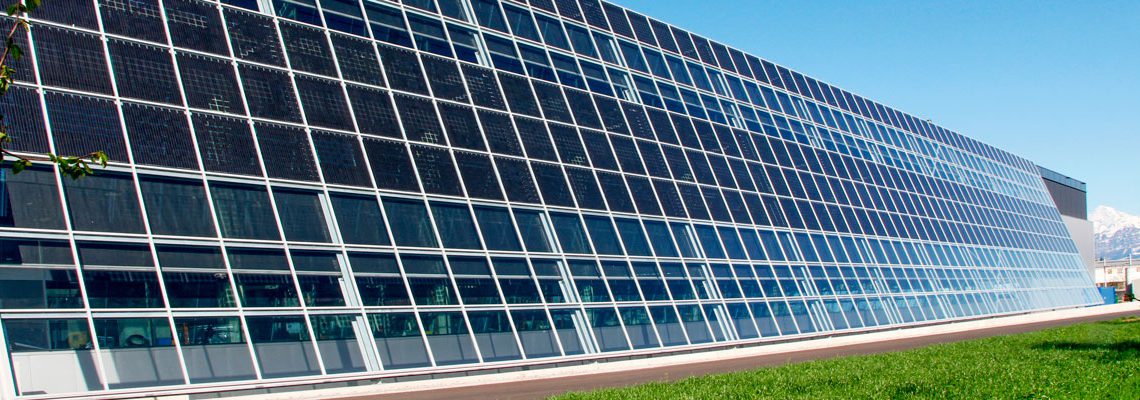Meyer Burger Technology Ltd unveiled at an online product premiere on its website and social media channels its new high-performance solar modules. A recording is available on the company’s website as well as on the YouTube and Facebook channels. Three patent-protected product variants were presented, all of which manufactured using the proprietary heterojunction/SmartWire technology in the company’s own production facilities in Germany.
According to the guiding principle “The best. From here. For tomorrow”, the concern is setting new industry standards with its new solar modules in terms of performance, origin and sustainability.
“We optimize our solar modules for maximum energy yield. They bring decisive differences compared to conventional products. The next-generation solar cells, which we interconnect with our proprietary SmartWire interconnection technology, enable our customers to achieve up to 20 percent higher energy yield on the same roof area.”
— Moritz Borgmann, responsible for global sales and marketing as Managing Director
The significantly higher energy yield over the service life is enabled by a top-class module conversion efficiency of up to 21.8 percent. On top, their modules produce significantly more energy from each watt-peak. For example, the modules lose only very little performance due to high temperature, low-light conditions or non-perpendicular incidence of light.
Borgmann noted that there is only one product feature in which the company is following the standard: “We achieve this industry-leading energy yield and up to 400 watt-peak module power without having to make the modules ever larger, as our competitors do. This allows installers to make the most of their customers’ roofs and to work with modules of familiar size and manageable weight.”
The company initially offers the three product variants Meyer Burger White, Black and Glass in the rooftop market for residential and small commercial customers. These solar modules feature a homogeneous “full cell” appearance, even though half cells are used. Due to the proprietary SmartWire interconnection technology, the “Meyer Burger Black” in particular appears uniformly black. The heterojunction/SmartWire technology also effectively prevents so-called “microcracks”, a major cause of ubiquitous performance degradation. In addition, the company employs a special backsheet that significantly increases the robustness and durability of the modules and thus also their lifetime energy yield. All variants therefore exhibit superior longevity, underpinned with performance guarantees of more than 92 percent for the “Meyer Burger White” and “Meyer Burger Black” after 25 years, and even more than 93 percent for the especially robust “Meyer Burger Glass” after 30 years.
This module with a transparent glass back is bifacial, which means that light captured on the backside is also converted into electricity. The module sets a record for the highest bifacial output of a solar module ever produced in volume, with a so-called bifaciality factor of 90 percent. The panel achieves a combined output of over 430 watt-peak at standard measurement conditions (BSTC). A special, proprietary “gapless” cell arrangement also makes ideal use of the module’s surface area, which additionally increases the energy yield.
The company relies on products “from here”, with its own technology, developed at its Swiss and German sites. As a result, the company also has a short‑, medium- and long-term roadmap that safeguards its technology leadership in the long term. Both the solar cells and modules are manufactured in plants in the heart of Europe. The resulting proximity to customers — end customers, installers and wholesalers — is a unique differentiator for the company. The company also strives to set up its supply chains locally to the greatest extent possible. Already today, the entire silicon used as well as other components are sourced from Europe. The company is thus also contributing to Europe’s strategic independence in the key technology of photovoltaics and to the resilience of supply chains.
Their products are aimed at customers who think about “tomorrow” also when it comes to solar modules and who attach great importance to sustainability. The modules are manufactured according to the highest social and environmental standards, as evidenced, among other things, by a substantial grant from the federal state of Saxony-Anhalt, Germany, for significantly more environmentally friendly manufacturing compared to today’s established production technologies. Their plants in Germany draw 100 percent of their electrical energy from renewable sources. What’s more, the modules are all free of toxic lead and therefore already compliant with the European RoHS Regulation (Directive 2011/65/EU of the European Parliament and of the Council of 8 June 2011 on the restriction of the use of certain hazardous substances in electrical and electronic equipment), for which the photovoltaic industry currently enjoys a temporary exemption. Furthermore, the concern is striving for a solution for almost complete recycling of the modules, contributing to the circular economy.

















